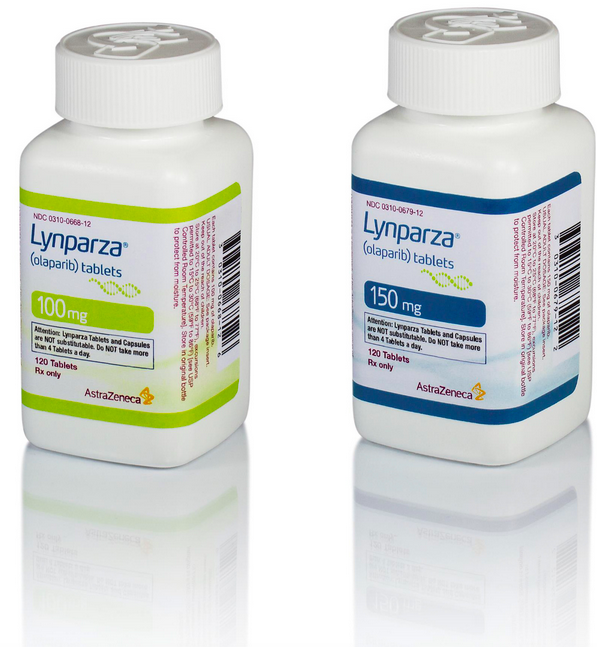Lynparza (olaparib) vs Keytruda (pembrolizumab)
Lynparza (olaparib) vs Keytruda (pembrolizumab)
Lynparza (olaparib) is a targeted therapy known as a PARP inhibitor, primarily used to treat certain types of breast, ovarian, prostate, and pancreatic cancers in patients with specific genetic mutations (such as BRCA mutations). Keytruda (pembrolizumab), on the other hand, is an immunotherapy drug that works as a PD-1 inhibitor, used to treat a wide range of cancers including melanoma, lung cancer, head and neck cancer, and others by helping the immune system to detect and fight cancer cells. The choice between Lynparza and Keytruda would depend on the type of cancer, the presence of specific genetic markers, the overall health of the patient, and the treatment goals, which should be discussed with an oncologist to determine the most appropriate therapy.
Difference between Lynparza and Keytruda
| Metric | Lynparza (olaparib) | Keytruda (pembrolizumab) |
|---|---|---|
| Generic name | Olaparib | Pembrolizumab |
| Indications | Ovarian, breast, pancreatic, and prostate cancers with specific genetic mutations (BRCA or HRR gene-mutated) | Various types of cancers including melanoma, non-small cell lung cancer, head and neck cancer, classical Hodgkin lymphoma, urothelial carcinoma, and more |
| Mechanism of action | Poly (ADP-ribose) polymerase (PARP) inhibitor, which prevents cancer cells from repairing their DNA damage, leading to cell death | Programmed death receptor-1 (PD-1) blocking antibody, which helps the immune system to detect and fight cancer cells |
| Brand names | Lynparza | Keytruda |
| Administrative route | Oral | Intravenous |
| Side effects | Anemia, nausea, fatigue, vomiting, respiratory infections, and blood count abnormalities | Fatigue, cough, nausea, itching, skin rash, decreased appetite, constipation, joint pain, and diarrhea |
| Contraindications | Known hypersensitivity to the active substance or to any of the excipients | Severe hypersensitivity to pembrolizumab or any of its excipients |
| Drug class | PARP inhibitor | PD-1 inhibitor |
| Manufacturer | AstraZeneca and Merck & Co. (MSD) | Merck & Co. (MSD) |
Efficacy
Lynparza (Olaparib) Efficacy in Breast Cancer
Lynparza, also known as olaparib, is a targeted therapy known as a PARP inhibitor. It has been shown to be effective in treating certain types of breast cancer. Specifically, Lynparza is approved for the treatment of HER2-negative breast cancer that is associated with a germline BRCA mutation. Patients with this type of mutation tend to respond well to PARP inhibitors because the drugs target cancer cells' ability to repair DNA, leading to cell death. Clinical trials have demonstrated that Lynparza significantly improves progression-free survival in patients with BRCA-mutated, advanced breast cancer compared to standard chemotherapy.
In the OlympiAD trial, which was a pivotal phase III study, patients treated with Lynparza showed a median progression-free survival of 7.0 months compared to 4.2 months for those receiving chemotherapy. This study was instrumental in the approval of Lynparza for breast cancer treatment. Additionally, the quality of life was reported to be better in patients receiving Lynparza compared to those on chemotherapy, indicating not just an efficacy benefit but also an improvement in the overall treatment experience for patients.
Keytruda (Pembrolizumab) Efficacy in Breast Cancer
Keytruda, known generically as pembrolizumab, is an immunotherapy drug that works by blocking the PD-1 pathway, which some tumors exploit to evade the immune system. For breast cancer, Keytruda has shown efficacy in treating triple-negative breast cancer (TNBC), which is a more aggressive and difficult-to-treat form of the disease. The drug has been studied in combination with chemotherapy and has been found to improve survival rates in patients with advanced or metastatic TNBC that expresses PD-L1.
In the KEYNOTE-355 trial, pembrolizumab combined with chemotherapy was shown to significantly improve progression-free survival in patients with metastatic TNBC whose tumors expressed PD-L1 compared with chemotherapy alone. The median progression-free survival was 9.7 months for the pembrolizumab-chemotherapy combination versus 5.6 months for the chemotherapy alone group. This improvement in progression-free survival highlights the potential of Keytruda to enhance outcomes for patients with this challenging form of breast cancer. It is important to note that the efficacy of Keytruda can vary based on PD-L1 expression and other tumor characteristics, and it is approved for use in specific patient populations within the breast cancer spectrum.
Regulatory Agency Approvals
Lynparza
-
European Medical Agency (EMA), European Union

-
Food and Drug Administration (FDA), USA

-
Health Canada

-
Therapeutic Goods Administration (TGA), Australia

-
Medsafe (NZ)

Keytruda
-
European Medical Agency (EMA), European Union

-
Food and Drug Administration (FDA), USA

-
Health Canada

-
Therapeutic Goods Administration (TGA), Australia

-
Medsafe (NZ)

Access Lynparza or Keytruda today
If Lynparza or Keytruda are not approved or available in your country (e.g. due to supply issues), you can access them via Everyone.org.
How it works

Make an enquiry
Choose the medicine you want to buy, answer a couple of questions, and upload your prescription to speed things up. We’ll get back to you within 24 hours.


Make an enquiry
Choose the medicine you want to buy, answer a couple of questions, and upload your prescription to speed things up. We’ll get back to you within 24 hours.


Breeze through the paperwork
We'll guide you through the required documents for importing unapproved medicine, ensuring you have all the necessary information.


Get a personalized quote
We’ll prepare a quote for you, including medicine costs and any shipping, administrative, or import fees that may apply.


Receive your medicine
Accept the quote and we’ll handle the rest - sourcing and safely delivering your medicine.

Some text on this page has been automatically generated. Speak to your physician before you start a new treatment or medication.
Let's talk
If you have any questions, call us or send us a message through WhatsApp or email:
Contact us




